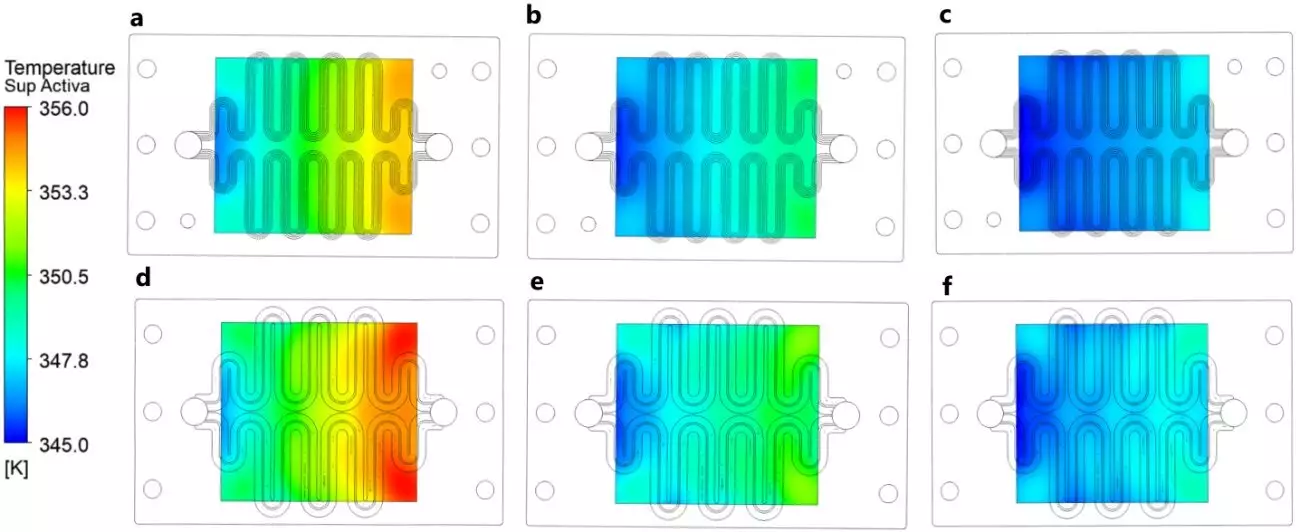Polymer electrolyte membrane fuel cells (PEMFCs) have emerged as a crucial technology in the realm of clean energy solutions, primarily due to their efficiency and low operational temperatures. However, one of the significant challenges faced in utilizing PEM fuel cells is effectively managing the heat generated during operation. A recent study conducted by a team of researchers at the University of Seville’s Department of Energy Engineering, in collaboration with AICIA and China’s Harbin Institute of Technology, delves into the intricate cooling dynamics essential for enhancing the longevity and performance of these fuel cells.
The study meticulously investigates the effects of temperature gradients within the polymer membrane of PEM fuel cells. Maintaining optimal temperature levels is essential, as excessive heat can adversely impact the integrity of the membrane, leading to a decline in performance and efficiency. By employing a numerical analysis approach focused on serpentine-type cooling channels, the researchers aimed to develop a deeper understanding of the thermal management challenges associated with these fuel cells.
Through computational fluid dynamics (CFD) simulations, the research team analyzed a fuel cell configuration with an active area of 100 cm². The analysis examined the interplay between various operational parameters, such as coolant type, mass flow rate, thermal contact resistance, and the materials used for bipolar plates. The results revealed that the coolant mass flow, alongside the thermal conductivity of the bipolar plates, significantly influences the cooling efficiency of PEMFC stacks.
In a groundbreaking piece of their research, the team introduced a novel correlation for the Nusselt number, a dimensionless quantity that characterizes convective heat transfer relative to conductive heat transfer. This new correlation provides a wide-ranging applicability, which is particularly beneficial for predicting cooling performance under diverse operational conditions.
The implications of this study are significant, suggesting that advancements in understanding and controlling temperature variations can directly enhance the performance and durability of PEMFC stacks. By employing the novel heat transfer correlation established in this research, designers and engineers may develop more resilient fuel cell systems that withstand temperature-induced degradation effectively.
Moreover, improving cooling strategies is not just a technical enhancement; it addresses the pressing need for sustainable energy solutions. As global energy demands grow, optimizing the performance of PEM fuel cells through effective cooling mechanisms will be vital in making this technology a cornerstone for future energy infrastructures.
The research conducted by the University of Seville marks a pivotal step toward enhancing the reliability and efficiency of polymer electrolyte membrane fuel cells. By focusing on the thermal dynamics within these systems, the study opens new avenues for innovation in fuel cell design, ultimately contributing to more sustainable and durable energy solutions. The findings indicate a promising future for PEMFC technology, where refined cooling methods can mitigate risks associated with thermal stresses, facilitating a broader adoption of clean energy technologies.


Leave a Reply